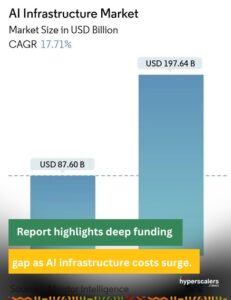Artificial intelligence (AI) is rapidly transforming the world, and data centers are at the heart of this transformation. AI workloads are incredibly compute-intensive, requiring massive amounts of power and cooling. While its early days, data centers in Africa need to begin to look ahead, and invest in infrastructure that meets the demands of AI.
There are a number of ways that data centers in Africa can invest in infrastructure to meet the demands of AI. One important investment is in high-power rack power density units (rPDUs). rPDUs are responsible for distributing power to the servers in a data center, and they need to be able to handle the high power demands of AI workloads.
 Another important investment is in liquid cooling. Liquid cooling is more efficient than air cooling and can help to dissipate the heat generated by AI workloads. However, liquid cooling is a more complex technology than air cooling, and data centers in Africa will need to invest in training and expertise to implement it effectively.
Another important investment is in liquid cooling. Liquid cooling is more efficient than air cooling and can help to dissipate the heat generated by AI workloads. However, liquid cooling is a more complex technology than air cooling, and data centers in Africa will need to invest in training and expertise to implement it effectively.
In addition to investing in infrastructure, data centers also need to invest in AI technologies. AI can be used to improve the efficiency and management of data centers, and it can also be used to develop new AI-powered applications. By investing in AI, data centers in Africa can position themselves to capitalize on the growing demand for AI services.
Specificall, data centers cab invest in infrastructure to meet the demands of AI:
- Install higher power rated rPDUs.
- Retrofit existing facilities with air-assisted liquid cooling
- Implement direct liquid cooling (DLC).
- Invest in AI technologies to improve efficiency and management.
- Develop new AI-powered applications
By making these investments, data centers in Africa can ensure that they have the infrastructure in place to meet the growing demand for AI services. This will position them to capitalize on the opportunities that AI presents and to play a leading role in the digital transformation of Africa.





